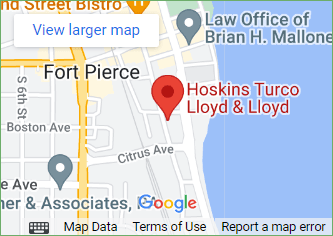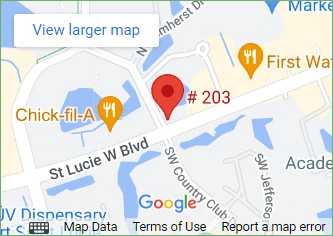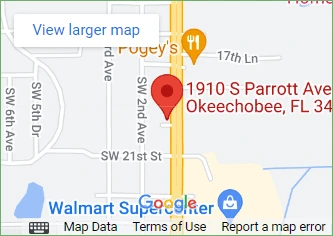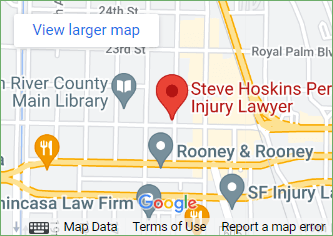Auto Accident Settlement
How Will my Income Affect my Bankruptcy?
When you’re unable to pay back people or institutions you owe money to, bankruptcy can help alleviate some of the debt you can’t afford to take on yourself. Unfortunately, this means that you’ll need to provide information about all your financial assets and savings in order to prove that you are truly unable to fully repay your creditors. You’ll also need to provide information on your current monthly income, for example, as this will play a role in determining whether you’re eligible for Chapter 7 or if you’ll need to file for Chapter 13 instead.

There are a lot of complexities involved with the bankruptcy filing process, and you’ll need a professional to keep you informed about which assets you need to report, income requirements and regulations regarding changes in income, and types of debt you can and can’t alleviate through filing bankruptcy. Be sure to always engage with a local bankruptcy attorney before making any serious decisions about your debt situation.
Income in a Chapter 7 Bankruptcy Case
Not all types of bankruptcy are the same, and your level of income will have an effect on the type of bankruptcy you are eligible to file for. In a Chapter 7 bankruptcy or a “liquidation bankruptcy,” you offer up some or all of your assets in order to pay back as much of your debt as possible. At the end of a Chapter 7 bankruptcy, all qualifying leftover debts are eliminated. This is often best for people without a lot of big-value assets like a home, or without a lot of extra income.
In order to qualify for Chapter 7 bankruptcy, you must pass a means test. This test is designed to prevent those with very high incomes from wiping out their debts without having to use their disposable income to pay back their creditors.
The Means Test — Income
The very first step of bankruptcy means test involves comparing your monthly income to the median monthly income for the state in which you are filing. In 2021, Florida’s median monthly household income with one earner was about $4,300. If you make a significantly higher monthly wage than this, it’s unlikely that you’ll qualify for Chapter 7 (unless you have enough qualified expenses on top of that). If you make less than the median income, then you simply qualify for Chapter 7 in nearly all cases, regardless of any expenses you have.
The Means Test — Expenses
If your monthly income exceeds your state’s median monthly income, then you will need to prove that the “disposable income” you have does not exceed a certain amount in order to qualify for Chapter 7. Your disposable income is any income left over after accounting for all allowed monthly expenses. Qualifying expenses usually include things like health care expenses, childcare expenses, taxes, house or car payments, or certain special expenses which can be argued for in your bankruptcy filing with the help of a seasoned bankruptcy attorney.
If you still don’t pass the means test after considering all your eligible expenses, your best option in terms of bankruptcy is likely to file Chapter 13.
Income in a Chapter 13 Bankruptcy Case
If you’re unable to utilize the more straightforward Chapter 7 bankruptcy option due to a high income, “reorganization” bankruptcy, or Chapter 13, might be your best bet. Unlike in Chapter 7, Chapter 13 does not end with a total discharge of eligible debts. Instead, you get the opportunity to organize all of your debts into a single repayment plan. This allows you to keep many assets that would otherwise be forfeit in a Chapter 7 filing and gives you some breathing room from certain legal actions, like wage garnishment and foreclosure.
In a Chapter 13 bankruptcy, your income level has a hand in determining the monthly payments you’ll be responsible for once your repayment plan is organized. These payments will be applied over the course of 3-5 years and will likely be a lot more manageable than your obligations prior to the reorganization.
In most cases, people prefer a Chapter 7 bankruptcy over a Chapter 13 for a variety of reasons. If you believe that you won’t pass the means test, it may be in your best interest to get in touch with a seasoned Florida bankruptcy lawyer to explore every avenue available.
Changes in Income
If your income ever changes throughout your bankruptcy filing, or at any time until all bankruptcy limitations are lifted, you will need to inform your case trustee. A decrease in your income during this time may increase your chances of qualifying for Chapter 7, while an increase in your income may require you to instead file for Chapter 13.
Keep in mind that this is not always the case and you should always speak to a bankruptcy lawyer before speaking to a bankruptcy case trustee, as they do not always have the right to new income after a Chapter 7 has already been filed. That said, you should never attempt to hide changes in income from the court, as they could affect either your Chapter 7 eligibility or your required monthly payments under Chapter 13. Instead, defer any contact from the courts to your attorney, and be sure to keep your legal advisors in the loop regarding any changes to your income.
Get Legal Help With Your Florida Bankruptcy Case
Seeking the help of a skilled bankruptcy attorney in your locale is a great way to improve the chances of a good outcome when it comes to filing Chapter 7 or 13. Hoskins, Turco, Lloyd & Lloyd are Florida Treasure Coast bankruptcy lawyers that have helped many others in similar positions and want to help you, too. The federal government strongly encourages anyone considering bankruptcy to seek the assistance of a qualified attorney — and for good reason. Bankruptcy cases are complicated, and they can determine your financial security for decades to come.
Give us a call at (866) 460-1990 or contact us online today to get started on a free, no-obligation consultation to find out your best options.
We are a debt relief agency and attorneys. We help people file for Bankruptcy relief under the Bankruptcy Code. The hiring of a lawyer is an important decision that should not be based solely upon advertisements. Before you decide, ask us to send you free information about our qualifications and experience.
Verdicts and Settlements
$1.2 Million
$1.6 Million
Wrongful Death Settlement
$11.1 Million
Settlement for motorcycle accident
Locations
Ft. Pierce, FL 34950
Suite 203, Port St. Lucie, FL 34986
Okeechobee, FL 34974
Vero Beach, FL 32960
The hiring of a lawyer is an important decision that should not be based solely upon advertisements. Before you decide, ask us to send you free written information about our qualifications and experience.
We are a debt relief agency and attorneys. We help people file for Bankruptcy relief under the Bankruptcy Code. The hiring of a lawyer is an important decision that should not be based solely upon advertisements. Before you decide, ask us to send you free information about our qualifications and experience.
Hoskins, Turco, Lloyd & Lloyd © 2020 All Rights Reserved. Terms of Use and Privacy Policy
This site is protected by reCAPTCHA and the Google Privacy Policy and Terms of Service apply.




